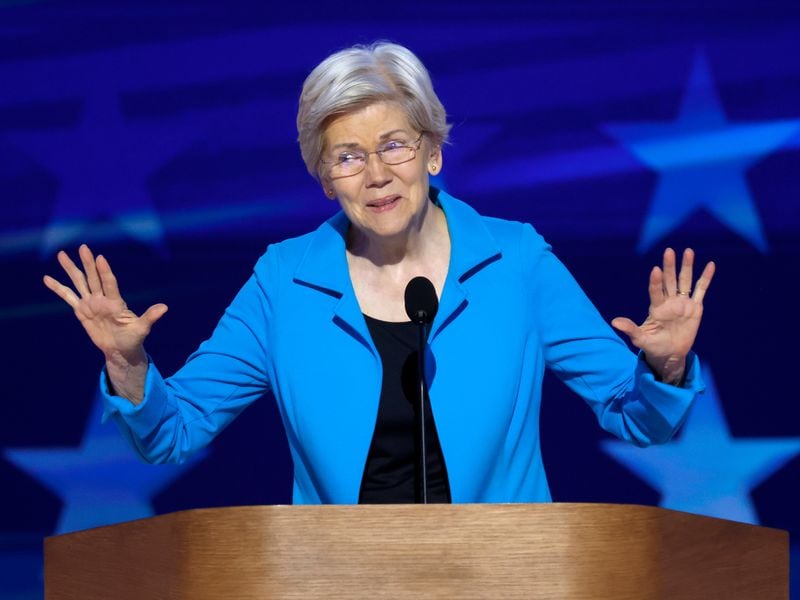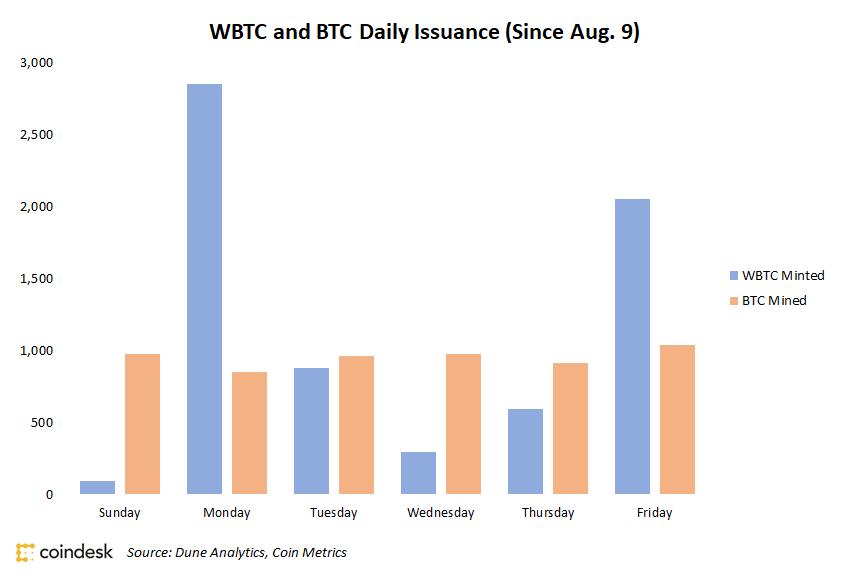Making Crypto Tokens Useful and Fair
Let’s be honest: when it comes to launching new tokens, the landscape is pretty rough. We’ve seen the same sad storyline play out repeatedly this year. Projects hype a token with limited or no fundamental utility, distribute a small number to the public at a high valuation, and then watch as the market price crashes toward zero.
Many blame “regulatory uncertainty” for this problematic pattern, arguing that only memecoins can survive the hostility of the U.S. Securities and Exchange Commission (SEC) and that there’s no way for crypto founders to launch exciting projects – and tokens that may be necessary or supportive of that project — without violating the federal securities laws.

01:50
Bitcoin Open Interest Hits Record High Amid BTC Price Surge

02:41
Bitcoin Leaps Across $71K, Eyes All-Time High; DOGE Futures Interest Nears Record

01:33
Sliding Copper-to-Gold Ratio Presents Bitcoin Bear Case

02:21
Tether Denies U.S. Probe; MicroStrategy Premium is ‘Unsustainable’: Report
We spend a lot of time talking to founders about how to develop a regulatory compliance strategy and prepare for SEC scrutiny when launching new tokens. You might expect two lawyers to address that issue by diving deep into the Howey Test, explaining why a court opinion about apartments in the 1970s means a token isn’t a security, or devising a complex corporate structure that requires a diagram to understand.
So now what is the focus? Something much more important: be a good actor and build tools people want.
We recommend founders start by stepping back from the details of the law and answering two questions: how do you make the token useful, and how do you make it fair?
Make the token useful
What does it mean for a token to be useful? The best heuristic is whether people want to hold it for some reason other than as an investment. For example, some tokens grant access to blockchain-based products or services, similar to how baseball tickets grant access to a game. Other tokens coordinate human decision-making, as with governance tokens, or incentivize human work, as with base layer infrastructure tokens. And even other tokens memorialize contributions to a system, whether it be data or something else valuable (but that isn’t an investment).
There are many useful tokens in crypto, but the archetype is the original: bitcoin. Bitcoin is useful as decentralized money enabling peer-to-peer payments for the world. It is also useful for providing decentralized security for the Bitcoin blockchain — without bitcoin the asset, Bitcoin the network could not exist. That utility is coded directly into the design of the Bitcoin protocol, which incentivizes people to contribute valuable work in the form of mining.
Similarly, decentralized physical infrastructure network (DePIN) tokens have proven particularly useful. DePIN projects use public blockchains to create decentralized networks of hardware operators who contribute resources such as data storage or wireless connectivity. The success of a DePIN project depends on incentivizing operators around the world to participate in the network, and tokens are uniquely suited to achieve that goal. Unlike traditional payment rails — which are slow, expensive, offchain, and gated by geographic borders — tokens can bring operators on-chain efficiently and effectively no matter where they are in the world.
Make the token fair
A major goal of crypto is to build transparent systems that are secure, accessible, and equitable for everyone. Yet, many tokens have been tarnished by “low float, high FDV” mechanics and other issues that give insiders an unfair advantage over the public. Few things will slow the momentum behind a new token faster than treating retail holders worse than insiders or institutions.
What does it mean for a token to be fair? The best measure is the front page test: will you be proud if your project becomes a huge success and all of the behind-the-scenes details are shared on the front page of a major newspaper? If not, you have some work to do.
One of the biggest pitfalls for new tokens is “decentralization theater” — when token creators pretend to build permissionless or community-governed projects in order to foster affinity with the public, but actually maintain control over the project in secret or, equally as bad, gives a disproportionate amount of the tokens to insiders (and not only investors).
Engaging in decentralization theater is not only unfair to token holders who may be deceived about the nature of the asset that they own, but also could be characterized as fraud by regulators or private plaintiffs. Honesty about every single aspect of a project is paramount. One of the most crucial regulatory advancements that could be achieved is an industry standard for disclosures about projects and their related tokens, and we encourage projects to think about how to be painfully transparent with the community.
The “cost of doing business” in this industry is an expectation that regulators will take notice of successful projects and ask questions sooner or later. Founders should be preparing for those conversations on day one by building in good faith and working hard to do what’s right. Focusing on fairness and transparency may not be easy, but will pay extraordinary dividends in the long run.
These considerations will benefit the industry overall from a technical and utility perspective. But this is not the key to unlocking “regulatory compliance” as the industry has come to think about it. Until we have more comprehensive regulation globally, founders still need to hire lawyers to ensure that they don’t violate the law, and the sooner in a project’s life cycle the better. Great lawyers are excellent thought partners in the token design process, and can help founders avoid costly mistakes that take even more time and money to solve down the road.
But starting from the perspective of making tokens useful and fair will be instrumental in helping the industry achieve long-term success.
Note: The views expressed in this column are those of the author and do not necessarily reflect those of CoinDesk, Inc. or its owners and affiliates.
Edited by Benjamin Schiller.
Disclosure
Please note that our
privacy policy,
terms of use,
cookies,
and
do not sell my personal information
have been updated
.
CoinDesk is an
award-winning
media outlet that covers the cryptocurrency industry. Its journalists abide by a strict set of
editorial policies.
CoinDesk has adopted a set of principles aimed at ensuring the integrity, editorial independence and freedom from bias of its publications. CoinDesk is part of the Bullish group, which owns and invests in digital asset businesses and digital assets. CoinDesk employees, including journalists, may receive Bullish group equity-based compensation. Bullish was incubated by technology investor Block.one.
:format(jpg)/s3.amazonaws.com/arc-authors/coindesk/f401db98-1098-441e-ae26-2b20cf3ba636.jpeg)
Rebecca Rettig is the Chief Legal & Policy Officer at Polygon Labs, where she both oversees the global legal team and works on international policy issues to ensure that the web3 community’s interests are represented with policymakers and regulators across the globe. Previously, Rebecca served as General Counsel of the Aave Companies.
:format(jpg)/s3.amazonaws.com/arc-authors/coindesk/cddc0326-e231-40ed-9f98-029b991f4e31.png)
Jake Chervisky is chief legal officer at Variant.









